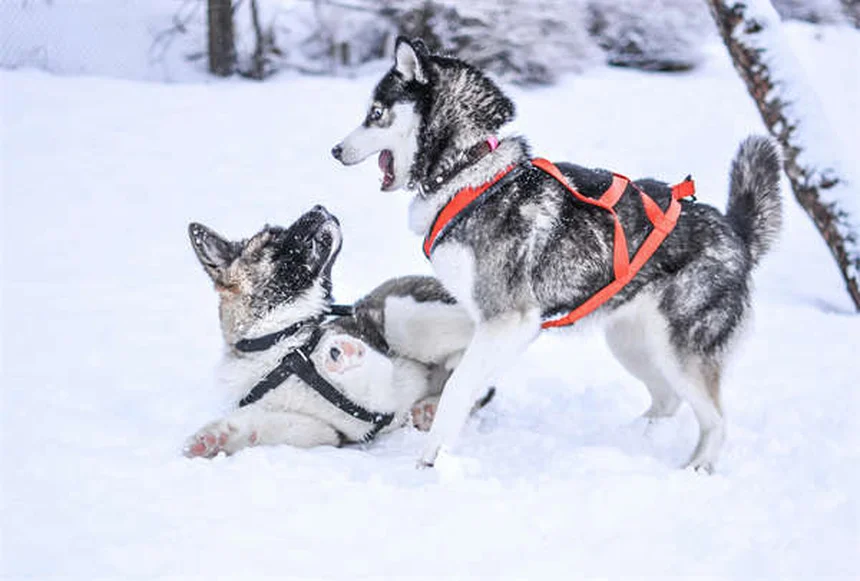How to train a ferret? The answer is simpler than you think - with patience, consistency, and lots of positive reinforcement! I've trained dozens of these clever little creatures, and let me tell you, they're smarter than most people realize. Whether you're dealing with biting issues or potty training struggles, we've got proven solutions that actually work.You'll be amazed how quickly ferrets can learn when you use the right techniques. From my experience, the key is catching those aha! moments when they're most receptive to learning. We'll cover everything from basic obedience to advanced tricks, plus some insider tips I've picked up over years of working with these furry escape artists.The best part? Training isn't just about good behavior - it's about building an incredible bond with your ferret. Stick with me, and soon you'll have a well-mannered companion who's a joy to live with. Let's dive in!
E.g. :Bottle Feeding Kittens: A Complete Guide for New Cat Parents
Advertisement
- 1、Ferret Training 101: From Biting to Bathroom Habits
- 2、Advanced Ferret Training: Beyond the Basics
- 3、Final Thoughts on Ferret Training
- 4、The Secret Life of Ferret Personalities
- 5、Ferret Fashion and Gear
- 6、Ferret Nutrition for Brain Power
- 7、The Social Dynamics of Multi-Ferret Homes
- 8、Seasonal Training Considerations
- 9、Ferret Aging and Training Adaptations
- 10、FAQs
Ferret Training 101: From Biting to Bathroom Habits
Why Train Your Furry Friend?
Let me tell you something - ferrets are way smarter than people give them credit for. I've seen these little guys learn tricks faster than some dogs! While they won't be pulling sleds anytime soon (can you imagine a ferret Iditarod?), basic training makes life better for everyone.
Think about it - would you want a pet that bites everything, pees wherever, and destroys your house? Didn't think so. That's why we train. The younger you start, the better results you'll get, just like teaching kids good habits early.
Bite Inhibition: Teaching Gentle Play
Ouch! That's usually the first word out of your mouth when a ferret nips you. Here's the deal - biting is natural for them, but we need to redirect that behavior.
Try these proven methods:
- Make a high-pitched "Eep!" sound when bitten (they hate that noise)
- Gently hold them by the scruff and say "NO" firmly
- Hiss at them like another ferret would
Pro tip: Keep teething rusks or hard dog biscuits handy. When they start nibbling your fingers, immediately swap in the biscuit. It satisfies their chewing urge without making you bleed!
 Photos provided by pixabay
Photos provided by pixabay
The Great Litter Training Adventure
Now let's talk potty training. Did you know ferrets can actually be easier to litter train than cats? True story!
Here's my foolproof system:
- Place the litter box in their favorite corner (they'll naturally pick a spot)
- Watch for the "potty dance" - circling, backing up, that sort of thing
- Scoop them up fast and plop them in the box
- Praise like crazy when they go in the right place!
Warning: Some sneaky ferrets will fake using the litter box just to get treats. Clever little stinkers! Always check for actual business before rewarding.
Ferret-Proofing Your Home
Ever seen a ferret open a cabinet? It's equal parts impressive and terrifying. These guys are escape artists extraordinaire!
| Problem Area | Solution |
|---|---|
| Digging in plants | Elevate plants or use hanging baskets |
| Escaping through doors | Install childproof locks |
| Carpet destruction | Use plastic runners in high-traffic areas |
Remember that time I caught my ferret trying to tunnel under the refrigerator? Yeah, that's when I learned to block off all small spaces. If a ferret can fit its head through, its whole body will follow!
Timing is Everything
Here's a question I get all the time: "Why isn't my ferret learning?" The answer? You're probably too slow with rewards or corrections.
Ferrets live in the moment. If you scold them five minutes after they pee on your rug, they'll just look at you like "Dude, what's your problem?" Instant feedback is crucial - praise or correct within 3 seconds of the behavior.
 Photos provided by pixabay
Photos provided by pixabay
The Great Litter Training Adventure
Another common question: "Should I punish bad behavior?" Actually, no! Focus on rewarding the good stuff instead.
When your ferret does something right:
- Give an immediate treat (I use tiny pieces of cooked chicken)
- Use an excited, happy voice
- Add some gentle pets or scratches
This positive approach creates a ferret who wants to behave well, not one who's just afraid of getting in trouble. Big difference!
Advanced Ferret Training: Beyond the Basics
Teaching Fun Tricks
Once you've mastered the essentials, why not teach some cool tricks? Ferrets can learn to:
- Come when called
- Roll over
- Navigate simple obstacle courses
The key? Break each trick into tiny steps and use clicker training. For example, to teach "come":
- Click and treat when they look at you
- Then when they take one step toward you
- Gradually increase distance
Socialization Matters
A well-socialized ferret is a joy to be around. Introduce your fuzzy to:
- New people (one at a time)
- Other friendly pets
- Different environments
Pro tip: Always supervise interactions with other animals. That cute kitten might see your ferret as a weird-looking mouse!
 Photos provided by pixabay
Photos provided by pixabay
The Great Litter Training Adventure
Had a perfect ferret who suddenly forgot all their training? Welcome to "ferret puberty"! Around 6-9 months, they often test boundaries.
Stay consistent, patient, and remember - this phase passes. Before you know it, you'll have that well-behaved buddy back. I've trained dozens of ferrets, and every single one went through this rebellious stage.
Final Thoughts on Ferret Training
Celebrate Small Victories
Training a ferret isn't about perfection - it's about progress. Did they use the litter box twice today when yesterday it was zero? That's a win!
Keep a training journal to track improvements. You'll be amazed how far they come in just a few weeks.
The Bonding Bonus
Here's the best part nobody talks about - training strengthens your bond. All those positive interactions create trust and affection. Before long, you'll have a furry shadow who follows you everywhere!
So grab some treats, arm yourself with patience, and get ready for an adventure. Ferret training might have its challenges, but the rewards are absolutely worth it. Who knows - you might just end up with the best-behaved ferret on the block!
The Secret Life of Ferret Personalities
Understanding Your Ferret's Unique Character
You know what's fascinating? No two ferrets have the same personality - they're like tiny, furry snowflakes with teeth! I've worked with dozens of these little guys, and let me tell you, their individual quirks make training both challenging and hilarious.
Some ferrets are natural-born comedians who'll do anything for attention, while others are shy bookworms who prefer quiet cuddles. Ever met a ferret who refuses to play unless you're watching? That's the drama queen type. Recognizing these personality types helps you tailor your training approach.
Matching Training Methods to Temperament
Here's where it gets really interesting. That high-energy ferret zooming around your living room? He'll respond best to fast-paced training sessions with lots of movement. But your laid-back couch potato? She prefers short, relaxed sessions with plenty of snack breaks.
I remember training two ferrets from the same litter - one would master tricks in minutes if I made it a game, while his brother needed slow, gentle encouragement. It's all about reading your ferret's mood and adjusting accordingly. Some days they're all business, other days they'd rather nap than learn.
Ferret Fashion and Gear
Must-Have Training Accessories
Now let's talk gear! You wouldn't go hiking without proper equipment, right? Same goes for ferret training. Here are some game-changers:
- Retractable leashes for outdoor adventures
- Puzzle feeders to stimulate their clever minds
- Soft harnesses that don't restrict movement
Ever tried training a ferret without treats? Yeah, good luck with that! I always keep a treat pouch clipped to my waist - it's saved me countless frustrated moments when my fuzzy student loses focus.
The Great Collar Debate
Here's a hot topic in the ferret world - to collar or not to collar? Some owners swear by them for identification, while others worry about safety. Personally? I'm team "breakaway collar with ID tag" for supervised outdoor time.
But here's the kicker - never use a collar during playtime. These acrobatic little guys can get them caught on furniture in crazy ways. I learned that the hard way when mine got his collar stuck mid-backflip!
Ferret Nutrition for Brain Power
Brain-Boosting Treats
Did you know what you feed your ferret affects their ability to learn? It's true! High-quality protein treats work wonders for training sessions. My go-tos are:
| Treat Type | Why It Works | Best For |
|---|---|---|
| Freeze-dried chicken | Strong smell grabs attention | Initial training |
| Salmon oil | Healthy fats support brain function | Advanced tricks |
| Duck liver treats | Irresistible to picky eaters | Stubborn ferrets |
Here's a fun fact - ferrets actually have favorite flavors, just like us! Mine goes nuts for anything fishy but turns up his nose at beef. Experiment to find your fuzzy's preference.
Hydration and Learning
Ever tried concentrating when you're thirsty? Neither can your ferret! Always keep fresh water available during training sessions. I like to use a small, stable bowl that won't tip over during excited moments.
Pro tip: Add ice cubes on hot days - ferrets love batting them around, and it keeps them cool between training exercises. Just watch out for the inevitable ice cube hockey games that break out!
The Social Dynamics of Multi-Ferret Homes
Training With Siblings Around
Got multiple ferrets? Training becomes a whole new ballgame! The key is understanding their social hierarchy. The dominant ferret will often try to steal the show (and the treats), while shy ones might hang back.
I've found it's best to train them separately at first, then gradually introduce joint sessions. Always have enough treats for everyone - ferret jealousy is real, folks! Nothing derails training faster than a treat-deprived ferret throwing a tantrum.
The Copycat Effect
Here's something amazing - ferrets learn by watching each other! Once one figures out a trick, the others often pick it up faster. I call this the "monkey see, monkey do" phenomenon, except with way more slinky bodies and mischievous grins.
Ever seen a ferret patiently wait their turn? Me neither! That's why I use baby gates to separate students during training. Otherwise, it turns into a furry free-for-all with everyone clamoring for attention at once.
Seasonal Training Considerations
Winter Blues and Summer Zoomies
Did you know ferrets' energy levels change with the seasons? In winter, they tend to be more cuddly and calm - perfect for teaching gentle tricks. But come summer? Buckle up for the zoomies!
I adjust my training approach accordingly:
- Winter: Focus on calm behaviors like "stay" and "gentle"
- Spring: Harness that renewed energy for active tricks
- Summer: Short, high-energy sessions early or late in the day
- Fall: Great time to reinforce all previously learned skills
Holiday Hazards
Here's a question I get every December: "Why is my ferret acting crazy around the Christmas tree?" Simple - it's the ultimate ferret playground!
Those shiny ornaments? Irresistible toys. The tree water? A forbidden swimming pool. The lights? Fascinating chew toys. I recommend moving training sessions away from holiday decorations unless you want your ferret practicing their acrobatics in the tinsel!
Ferret Aging and Training Adaptations
Senior Ferret Training
As ferrets age, their training needs change. That lightning-fast youngster who mastered tricks in days might now need more patience and encouragement. But here's the beautiful part - older ferrets often have better focus and longer attention spans.
I've had great success teaching senior ferrets simple commands using softer treats and gentler methods. Their favorite trick? "Cuddle time" - they've usually mastered that one naturally!
Adapting to Physical Changes
Arthritis or vision loss doesn't mean training stops - it just means we adapt. For less mobile ferrets, I focus on mental stimulation through scent games and gentle puzzle toys.
One of my favorite senior ferret activities is the "treasure hunt" - hiding treats in easy-to-reach places to keep their minds sharp. Just don't be surprised if they outsmart you and find treats you forgot you hid!
E.g. :Advice for a first time ferret owner? : r/ferrets
FAQs
Q: How long does it take to potty train a ferret?
A: Most ferrets catch on to litter training within 2-4 weeks if you're consistent. Here's what I've found works best: Place multiple litter boxes in their favorite corners (ferrets naturally pick spots), use a dust-free litter, and reward immediately after they use it correctly. Some smart alecks will pretend to go just for treats - always check for actual waste before rewarding! Accidents happen, especially with young ferrets, so keep cleaning supplies handy. The secret? Watch for the "potty dance" - when they start backing up or circling, that's your cue to gently place them in the box.
Q: Why does my ferret keep biting me?
A: Ferrets bite for several reasons - teething, playfulness, or sometimes just testing boundaries. From my experience, the most effective way to stop biting is the three-step method: 1) Make a high-pitched "Eep!" sound (they hate it), 2) Say "NO" firmly while holding their scruff gently, 3) Immediately redirect to a chew toy. Remember, never hit or yell - positive reinforcement works way better. I always keep hard dog biscuits handy for when they get mouthy. With consistent training, most ferrets outgrow excessive biting within a few months.
Q: Can ferrets really learn tricks like dogs?
A: Absolutely! I've taught ferrets to come when called, roll over, even navigate obstacle courses. The trick is breaking behaviors into tiny steps and using clicker training. Start with simple commands like "come" - click and treat when they look at you, then when they take one step toward you, gradually increasing distance. Training sessions should be short (5-10 minutes) and fun. Pro tip: Use their favorite treats (mine go crazy for tiny bits of cooked chicken) and always end on a positive note. Their attention spans are short, but their learning capacity will surprise you!
Q: How do I stop my ferret from digging everywhere?
A: Ah, the eternal ferret dilemma! Digging is hardwired into their instincts, but you can manage it. Here's what works: Provide approved digging boxes filled with rice or plastic balls (they love the texture), use plastic runners on carpets, and say "NO" firmly when they dig in off-limit areas. I've found that redirecting to appropriate digging spots combined with consistent boundaries significantly reduces unwanted digging. For plants, either elevate them or use hanging baskets. Remember - it's about management, not elimination. A happy ferret needs some digging outlets!
Q: What's the most important rule in ferret training?
A: Without question - timing is everything. Ferrets live completely in the moment, so you must praise or correct within 3 seconds of the behavior. Delayed reactions confuse them. I can't stress this enough - whether it's a treat for using the litter box or a firm "NO" for biting, immediate feedback is crucial. Also, consistency across all family members is vital. If one person allows biting while another discourages it, your ferret will just get confused. Stick with it, and you'll be amazed at how quickly they learn when the rules are clear and consistent!







